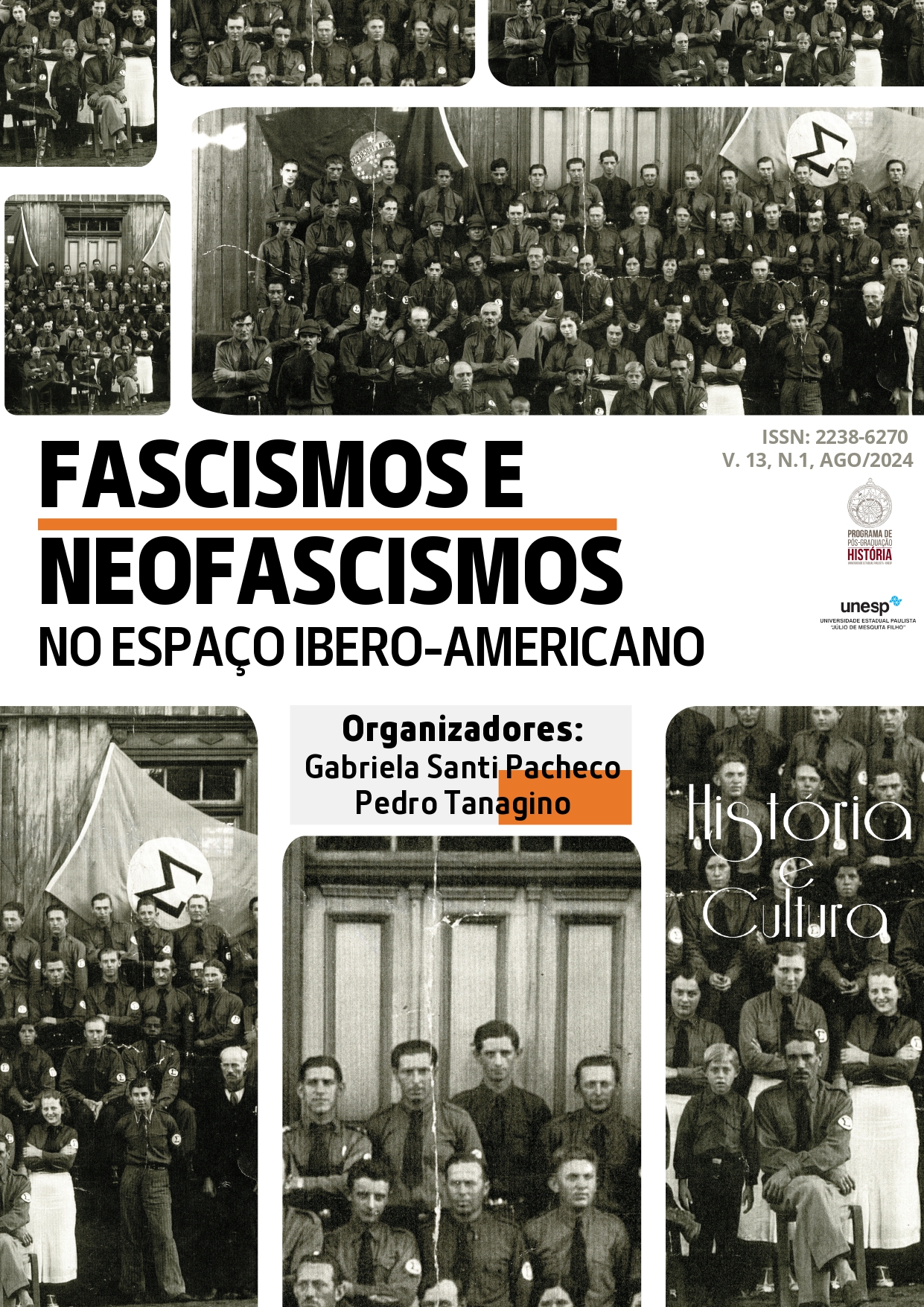BRAZILIAN INTEGRALISM AS A VARIANT OF FASCISM:
The ideology of the leaders of the Brazilian Integralist Action
DOI:
https://doi.org/10.18223/hiscult.v13i1.4369Resumo
In spite of all the recent studies about “generic fascism” in different countries, they did
not exhaust the pertinence of an analysis of the Brazilian AIB as a permutation of fascist ideology. Thus, the goal of this essay is to establish in a more thorough way which were the components that allow for us to insert the AIB in the wider phenomenon of fascism, as well as the elements that made it a variety with unique characteristics. Using the conceptual morphological approach, this essay presents an ideological pattern of “generic fascism” composed of six core concepts (nation, state, synthesis, revolution, authority and violence), and then proceeds to a close reading of texts by Salgado, Miguel Reale and Gustavo Barroso.
Downloads
Publicado
Edição
Seção
Licença
Copyright (c) 2024 História e Cultura

Este trabalho está licenciado sob uma licença Creative Commons Attribution-NonCommercial-NoDerivatives 4.0 International License.
Os(as) autores(as) são os detentores dos direitos autorais dos artigos encaminhados à Revista História e Cultura e fica autorizado ao periódico a publicação do referido manuscrito. O trabalho permanece licenciado sob a Licença Creative Commons Attribution CC BY 4.0, a qual permite o compartilhamento do material desde que a autoria seja devidamente atribuída e referenciada.

